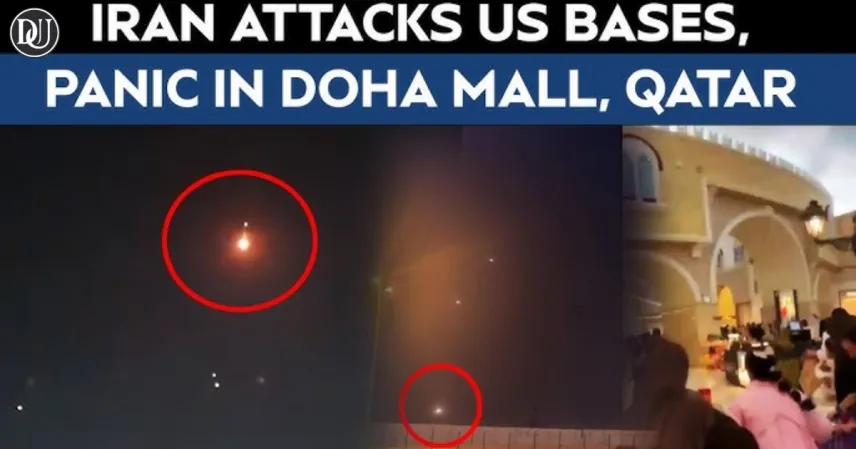In a dramatic escalation of regional tensions, Saudi Arabia has strongly condemned Iran’s missile and drone attack on Qatar, labeling it “unjustifiable” and “unacceptable.” The incident has rattled the Gulf region, prompting swift diplomatic responses and concerns over the stability of the Middle East.
The Iranian strike, reportedly aimed at U.S. military installations in Qatar, has been widely criticized by the international community. In response, Saudi Arabia declared that it is ready to deploy its defense capabilities to aid Qatar and ensure regional security.
The Incident: Iran Targets U.S. Presence in Qatar
Iran claimed responsibility for a series of missile and drone attacks targeting what it called "hostile foreign military assets" in Qatar. The primary target appeared to be the Al Udeid Air Base, which houses a significant U.S. military presence.
Although Qatar has not directly commented on Iran’s justification, the country has condemned the attacks and called for immediate de-escalation. Reports confirm minor damage but no significant casualties. The strike has drawn widespread attention, as it marks one of the most direct threats to Qatar in recent years.
Saudi Arabia’s Firm Stance and Immediate Response
Saudi Arabia was quick to respond, issuing a statement condemning the attack as a violation of international law and a threat to regional peace. The Kingdom stressed its full support for Qatar and expressed readiness to use both military and humanitarian capabilities if required.
Saudi officials emphasized that the sovereignty of Gulf nations must be respected and that Qatar’s safety is integral to the region’s overall stability. Riyadh also urged the international community to take decisive steps to prevent further escalation by Iran.
Regional Diplomacy in Motion
Following the attack, diplomatic channels have become highly active. Qatar has reached out to allies, including Turkey, the United States, and European Union members, to discuss a coordinated response. Saudi Arabia is also holding high-level discussions with Gulf Cooperation Council (GCC) countries.
Many regional analysts believe this incident could either push Gulf states toward tighter unity or further entrench divisions depending on how Iran and other powers react in the coming days.
Qatar’s Strategic Position in the Region
Qatar has often found itself at the crossroads of regional conflict due to its geopolitical importance and foreign alliances. Hosting the largest U.S. base in the Middle East, Qatar plays a key role in American military operations across the region.
This latest attack underscores how the country’s strategic position can make it a target in broader power struggles. Still, with Saudi Arabia’s support and backing from other allies, Qatar is likely to maintain its security posture and diplomatic influence.










